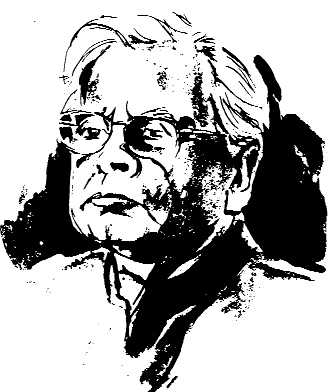
K. Natwar Singh
By K. Natwar Singh
I attended five Commonwealth Heads of Government Meetings (CHOGMs) — Kingston (Jamaica) in 1975; Lusaka (Zambia) 1979, New Delhi 1983, Vancouver (Canada) 1987; and Kuala Lumpur (Malaysia) 1989. Nehru transformed the Commonwealth that was seen as a racist white man’s club, consisting of the UK, Canada, South Africa, Australia and New Zealand. Today, the membership adds up to 53 nations. India’s population is twice as much as that of all other 52 nations. India, Pakistan and Sri Lanka were members of the old Commonwealth till 1950. When India became a republic in 1950, Nehru made it clear the country could not remain a member unless the Commonwealth made itself relevant to the second half of the 20th century. King was no longer to be emperor of India.
Prime Minister Narendra Modi was the most important and sought-after head at the London summit. The next summit will see Prince Charles as head of the Commonwealth. His mother has occupied that post since 1952.
I was chief coordinator of the 7th CHOGM in New Delhi in November, 1983. To my delight and surprise, I received a letter of appreciation from the late Prime Minister Indira Gandhi for the successful conclusion of the summit.
******
I read the full text of Dr Manmohan Singh’s Rangnekar Memorial Lecture which he delivered in Chandigarh last week. I read it carefully and with deep interest. Prof Rangnekar was one of the founders of the department of economics of Punjab University after the Partition. Manmohan Singh joined the department as an MA student in 1952. “He was a great teacher who inspired me to go to Cambridge.”
In his lecture, he addressed fundamental questions that are of concern to all thinking and alert people. He quoted Dr Ambedkar: “It is not that India was never an independent country. The point is that she once lost the independence she had. Will she lose it a second time? Will Indians place the country above their creed or will they place creed above the country? I do not know...”
I am in agreement with most of what he said. I differ from his preaching the gospel of equality. The world is an unequal place. Nature is not known for equality. Human beings lead appallingly unequal lives. The Almighty is not a democrat. Manmohan Singh was born to become an economist of genius. His driver is less fortunate. Incompetent persons rule, the wealthy look down on the poor, not all elected representatives respect equality. Criminals get elected to the Lok Sabha while in jail. We are rightly proud of our one man one vote. Of the present members of the Lok Sabha almost 70 per cent have not spoken even once. That probably is a blessing in disguise. Heaven knows what verbal outrages they would have committed. Having said that, I like EM Forster’s Two Cheers for Democracy; one, because it admits variety and, two, it permits criticism.
******
I have been re-reading Amrit Rai’s biography of his father, Munshi Prem Chand 1880-1936. The book is in Hindi and over 600 pages long. Prem Chand remains the most creative, talented and inspiring Hindi novelist and story writer of all time. He wrote his earliest stories in Urdu, shifting to Hindi when Gandhiji arrived on the scene.
A few months before his death, Prem Chand was invited by the Hindu Prachar Sabha to address its annual convocation. The broad subject was the spreading of Hindi in a non-Hindi speaking state. Addressing himself to the Muslim diehards, Prem Chand said:
“I ask you, why do you feel so murderously towards Hindi? Do you know — and if not, then you very well ought to know — that the first poet in Hindi, who sowed the seed of literary Hindi… was (a Muslim) Amir Khusro? Do you know that upwards of five hundred Muslim poets have so far enriched Hindi with their works and that some of them rank among the top poets in the language? Do you know that Akbar and Jahangir and even Aurangzeb had a taste for Hindi poetry and that it was Aurangzeb who had given to new varieties of mangoes (pure Sanskrit) names such as Rasana-vilas and Sudha-ras? Do you know that even today poets such as Hasrat and Hafeez Jalandhari occasionally try their poetic prowess in Hindi? Do you know that thousands of nouns and verbs in Hindi have originally come from Arabic and Persian and are now completely at home in it? And if you know all this and still discriminate between Urdu and Hindi, then you do injustice to your country and to yourselves… I have a complaint against my Muslim friends, that they shun even the most easily understood Hindi words.”



























